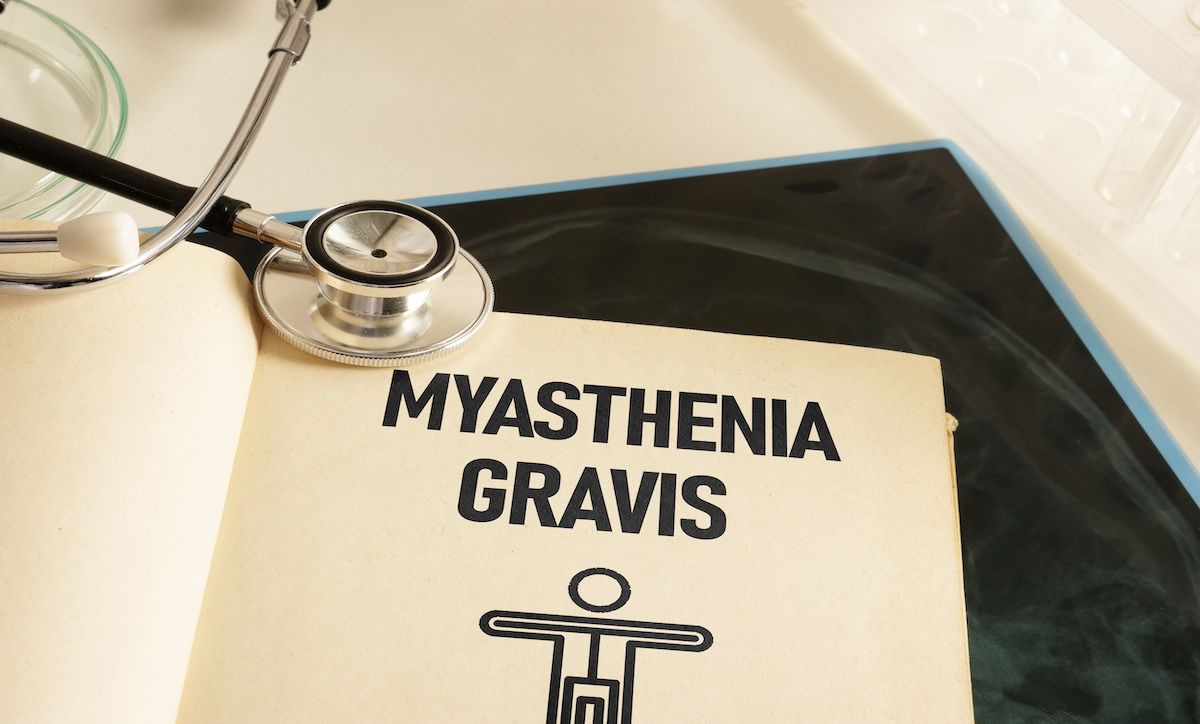- Center on Health Equity & Access
- Clinical
- Health Care Cost
- Health Care Delivery
- Insurance
- Policy
- Technology
- Value-Based Care
Study Finds Ravulizumab Effective in Treating Acetylcholine Receptor–Positive Generalized MG
More than 60% of complement inhibitor–naive patients with acetylcholine receptor–positive generalized myasthenia gravis (MG) in diverse clinical populations had a clinically meaningful reduction in MG activities of daily living scores.
A multicenter retrospective study published in Frontiers in Neurology1 examined patients with acetylcholine receptor–positive (AChR+) generalized myasthenia gravis (gMG) who were treated with ravulizumab and had MG activities of daily living (MG-ADL) scores available both pre- and post ravulizumab.
“With dramatic interest in the development of novel therapies for MG, we expect increasing options in complement inhibition in patients with AChR+ MG. Currently, two intravenous monoclonal antibody therapies, eculizumab and ravulizumab, with different half-lives are FDA approved. Another therapy, zilucoplan, a peptide that binds to C5 and prevents the formation of a membrane attack complex, given daily by the subcutaneous route, received FDA approval in October 2023,” the authors stated. “With all these expensive therapeutic options, it is critical to identify the patients most likely to benefit from complement inhibition.”
The study cohort included 18 patients from 3 large neuromuscular practices with a mean age of 61.83 years who started on ravulizumab from May 2022 to May 2023. In terms of sex, 11 were male and 7 were female. The racial makeup was 16 Caucasian patients and 2 Hispanic patients.
Since 2017, the FDA has approved 3 complement inhibitors and 2 neonatal FC receptor antagonists for management of myasthenia gravis | Image Credit: © Andrii - stock.adobe.com

Of this group, 10 patients were complement inhibitor naive, and this group had a reduction in mean MG-ADL from 6.6 pretreatment to 4.4 post treatment. Six of these 10 patients had clinically meaningful reduction post ravulizumab and 2 reached minimum symptom expression (MSE).
Patients who switched from eculizumab to ravulizumab exhibited even more improvement in their mean MG-ADL scores. Of the 8 patients in this category, MG-ADL scores declined from 3.25 pretreatment to 1.5 post ravulizumab. None of these patients showed worsening symptoms.
Most patients who were on prednisone therapy—11 of 14—were able to reduce their prednisone dosage post ravulizumab within a few months. None of these 11 patients experienced major adverse effects.
The study included 3 patients on intravenous immunoglobulin (IVIG) and 2 with a recent history of thymoma, patients who would not typically meet phase 3 clinical trial criteria. One patient on IVIG, who also had a history of thymoma, showed clinical improvement in MG-ADL, from 7 to 0. Another patient on IVIG exhibited no change in ADL (5, before and after ravulizumab). The remaining patient’s MG-ADL score worsened, from 0 to 8.
Of the 2 patients with a history of thymoma (status post thymectomy), 1 achieved MSE and the other patient maintained MSE status post ravulizumab.
“This finding suggests that ravulizumab might be an effective option even in patients with thymoma, similar to publications showing the effectiveness of eculizumab in thymoma patients,” the authors wrote.
The anti–acetylcholine receptor antibody is found in 70% to 90% of patients with generalized acquired MG, according to Medscape.2
Since 2017, the FDA has approved 3 complement inhibitors and 2 neonatal FC receptor (FcRn) antagonists for MG management. The first complement inhibitor to receive FDA approval for MG was eculizumab, a monoclonal antibody. In April 2022, ravulizumab, a longer-acting form of C5 monoclonal antibody, was approved by the FDA for patients with AChR+ gMG. Ravulizumab and eculizumab work according to similar mechanisms, but ravulizumab has a longer half-life (51 vs 14 days) and therefore requires fewer infusions, the authors stated.1
The FDA approved another therapy, Zilucoplan, a peptide that binds to C5 and prevents the formation of a membrane attack complex and administered daily by the subcutaneous route, in October 2023. And more oral and IV complement inhibitor therapies are in development, according to the study.
“More recent analysis suggests that the synergistic action of multiple AChR antibodies targeting different epitomes is critical for complement activation and disease severity. Nevertheless, these cell-based complement activation assays are not available for clinicians, therefore, no clear guidance is available for optimal patient selection for complement inhibitor therapy,” the authors wrote.
References
- Katyal N, Govindarajan R, Goyal N, et al. Ravulizumab use for acetylcholine receptor-positive generalized myasthenia gravis in clinical practice. Front Neurol. 2024;15:1378080. doi:10.3389/fneur.2024.1378080
- Acetylcholine receptor antibody. Medscape. Accessed July 2, 2024. https://emedicine.medscape.com/article/2094601-overview?form=fpf
